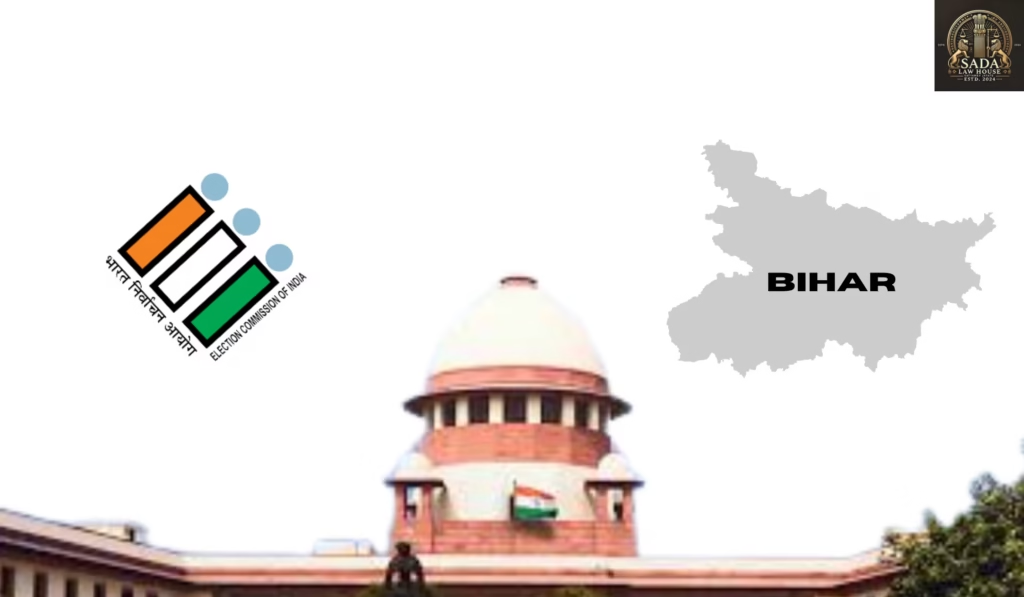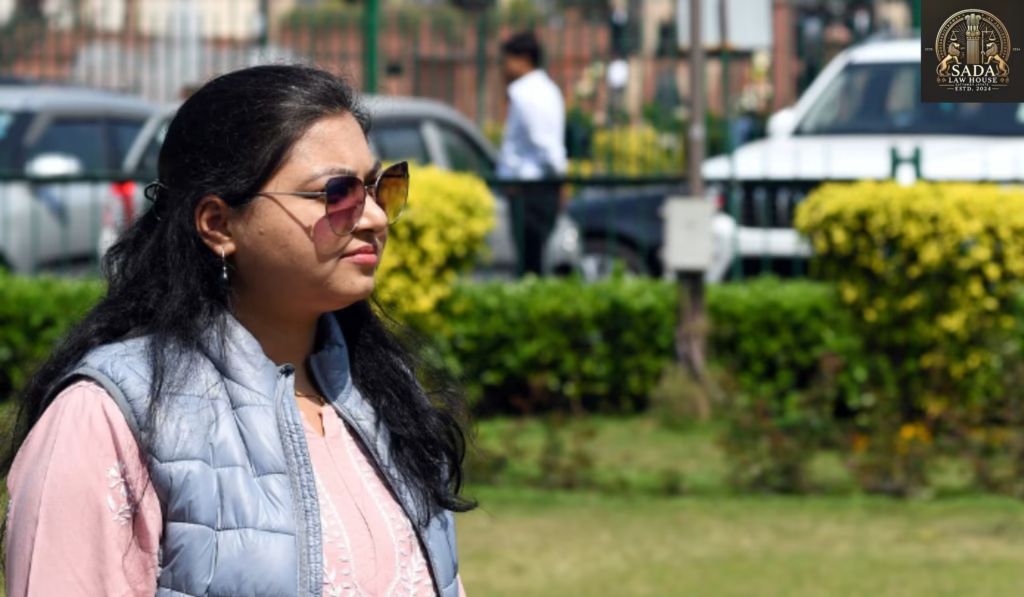Supreme Court Directs ECI to Consider Aadhaar, Voter ID, and Ration Cards for Bihar Voter Roll Revision
Trending Today Supreme Court Directs ECI to Consider Aadhaar, Voter ID, and Ration Cards for Bihar Voter Roll Revision Supreme Court to Hear Cartoonist Hemant Malviya’s Bail Plea in PM Modi Caricature Case LEGAL JOB OPPORTUNITY AT ADV BIDYA LOK LEGAL JOB OPPORTUNITY AT EXCELSIS ENERGY JOB OPPORTUNITY AT CYS LEGAL LEGAL JOB OPPORTUNITY AT BMW GROUP FINANCIAL SERVICES LEGAL JOB OPPORTUNITY AT LEX CHAMBERS INTERNSHIP OPPORTUNITY AT NM LAW CHAMBERS LEGAL JOB OPPORTUNITY AT SILVER PUSH LEGAL JOB OPPORTUNITY AT INDI-GENIUS CONSULTING INC. Supreme Court Directs ECI to Consider Aadhaar, Voter ID, and Ration Cards for Bihar Voter Roll Revision Prabhat Kumar Biltoria 13 JULY 2025 The Supreme Court has instructed the Election Commission of India to consider Aadhaar, Voter ID, and ration cards during the Bihar voter roll revision process, aiming to prevent disenfranchisement ahead of the 2025 Assembly elections. Supreme Court Steps In on Bihar Voter Roll Controversy On July 10, 2025, the Supreme Court of India granted the Election Commission of India (ECI) the go-ahead to proceed with the Special Intensive Revision (SIR) of electoral rolls in Bihar, ahead of the upcoming 2025 Assembly elections. However, the Court issued a crucial instruction: to avoid the exclusion of legitimate voters, the ECI must consider including identity documents such as the Aadhaar card, Voter ID (EPIC), and ration card during the voter verification process. Petitioners Raise Concerns Over Disenfranchisement The voter list revision process, officially announced on June 24, faced legal challenge from petitioners who argued it posed an unfair burden on voters, particularly those from marginalised and underprivileged communities. They warned that the short timeline—just weeks before the draft list is due on August 1, with elections expected in October or November—could lead to widespread disenfranchisement. Court Calls for Inclusive and Transparent Electoral Practices Although the Supreme Court declined to halt the voter list revision altogether, it emphasized the need for an inclusive approach. The bench advised the ECI to assess the usefulness of identity documents like Aadhaar, EPIC, and ration cards, and to provide a valid explanation if it chooses to exclude any. This move aims to prevent rigid interpretations of the SIR guidelines that could potentially disqualify eligible voters from being added to the revised electoral rolls. Legal Concerns Over ECI’s Powers and Timeline The Court also expressed doubts over whether the ECI had the constitutional authority to initiate the SIR without explicit parliamentary backing. It questioned whether a rapid revision under these conditions can uphold the principles of free and fair elections—a core component of India’s democratic framework. What’s Next: Key Dates to Watch July 21, 2025: ECI must file its counter-affidavit July 28, 2025: Follow-up hearing in the Supreme Court August 1, 2025: Deadline for releasing the draft electoral roll The Court’s guidance is expected to influence not just Bihar but also electoral roll practices across India. Political Reaction and Broader Implications Opposition parties have welcomed the Supreme Court’s interim directions, calling them a positive step toward protecting democratic rights and ensuring electoral transparency. This case is likely to set a nationwide precedent for how voter roll revisions are carried out, prompting a broader dialogue on inclusivity, documentation requirements, and voter rights in India. Leave a Reply Cancel Reply Logged in as Sadalaw. Edit your profile. Log out? Required fields are marked * Message* Live Cases Supreme Court Directs ECI to Consider Aadhaar, Voter ID, and Ration Cards for Bihar Voter Roll Revision Sadalaw • July 13, 2025 • Live cases • No Comments Supreme Court to Hear Cartoonist Hemant Malviya’s Bail Plea in PM Modi Caricature Case Sadalaw • July 13, 2025 • Live cases • No Comments Bombay High Court Upholds Free Speech in Journalist Sedition Case Sadalaw • July 10, 2025 • Live cases • No Comments 1 2 3 … 5 Next »


